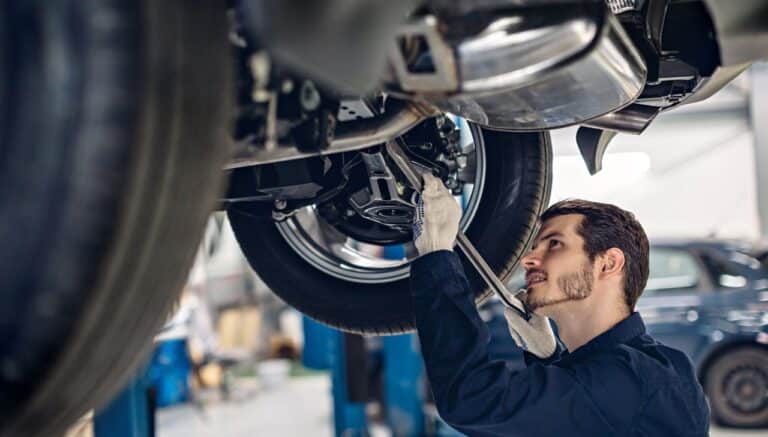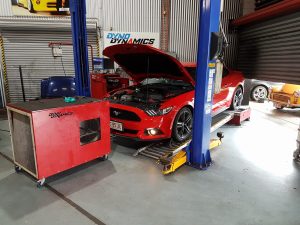
The fuel system is an integral part of any vehicle, responsible for delivering fuel to the engine for combustion. Over time, the fuel system can accumulate deposits and clogs, which can negatively impact fuel efficiency and engine performance. In this blog post, we will explore the importance of fuel system cleaning and how it can improve both fuel efficiency and overall performance. See more
Exploring the Fuel System: A Comprehensive Overview
To comprehend the significance of fuel system cleaning, it is essential to understand its components and their functions. The fuel system consists of various parts, including the fuel tank, fuel pump, fuel filter, fuel injectors, and fuel lines. Each component plays a crucial role in the proper delivery of fuel to the engine.
Understanding the fuel system is important to comprehend the significance of fuel system cleaning. The fuel tank stores the fuel, and the fuel pump sends it to the engine through the fuel lines. The fuel filter ensures that any debris or impurities in the fuel do not make their way into the engine. Finally, the fuel injectors atomize and spray the fuel into the engine for combustion.
Benefits of Fuel System Cleaning
Regular fuel system cleaning can prevent these issues from occurring and provide several benefits. Firstly, it can improve fuel efficiency by ensuring smooth and efficient delivery of fuel to the engine. This, in turn, saves you money on fuel costs and reduces your carbon footprint.
Secondly, fuel system cleaning can improve engine performance by removing harmful deposits and buildup that can affect the engine’s power output. This means your vehicle will run smoother and respond better to acceleration. Lastly, regular fuel system cleaning can extend the lifespan of your engine by reducing wear and tear caused by dirty fuel injectors and other components. This can save you money on costly repairs in the long run and keep your vehicle running smoothly for years to come.
In short, investing in regular fuel system cleaning not only saves you money but also improves the overall performance and longevity of your vehicle. It’s important to note that fuel system cleaning should not be confused with just adding fuel additives to your gas tank. While these additives may provide some benefits, they are not a substitute for a thorough fuel system cleaning performed by a professional.
Common Issues in Fuel Systems
Fuel deposits and clogs are common problems that can arise in a fuel system. These deposits can accumulate on the fuel injectors, intake valves, and combustion chambers, hindering the efficient flow of fuel. As a result, the engine may experience reduced fuel efficiency, decreased power, and increased emissions.
There are common issues that can arise in a fuel system that can impede its efficiency and performance. Fuel deposits and clogs are some of these problems, caused by the accumulation of particles on various components of the fuel system such as fuel injectors, intake valves, and combustion chambers. This build-up can obstruct the proper flow of fuel resulting in various issues including reduced fuel efficiency, decreased power output, and increased emissions. Therefore, it is important to regularly clean your fuel system to ensure optimal performance and avoid potential damage.
The Need for Fuel System Cleaning
Fuel system deposits can be caused by impurities in the fuel, such as dirt, varnish, and carbon buildup. If left unaddressed, these deposits can lead to various issues, including poor fuel economy and diminished engine performance. Signs of a dirty fuel system include decreased acceleration, rough idle, and difficulty starting the engine.
Cleaning your car’s fuel system regularly can help maintain optimal engine performance and fuel efficiency. A fuel system cleaning involves removing any buildups of deposits from the fuel injectors, intake valves, and other key components responsible for the proper delivery of fuel to the engine. By investing in regular fuel system cleanings, you can extend the life of your car’s engine and keep it running smoothly. Not only will you save money on fuel costs in the long run, but you’ll also contribute to a cleaner environment by reducing harmful emissions.
One of the best ways to keep your fuel system clean is to use high-quality fuel. Look for gasoline that contains detergents and other additives that help prevent deposits from forming. Additionally, using top-tier fuel can help ensure that your car runs efficiently and smoothly.
Methods of Fuel System Cleaning
Fuel Additives:
- Fuel additives are chemical compounds designed to clean and remove deposits from the fuel system.
- They are added directly to the fuel tank and work by breaking down carbon deposits, varnish, and other contaminants.
- These additives help improve fuel efficiency, restore engine performance, and reduce harmful emissions.
Fuel Injector Cleaning:
- Fuel injectors play a critical role in delivering fuel to the engine in a precise and controlled manner.
- Over time, fuel injectors can become clogged or restricted due to the buildup of carbon deposits or impurities in the fuel.
- Fuel injector cleaning involves the use of specialized cleaning solutions or equipment to remove these deposits and restore proper fuel flow.
Professional Fuel System Cleaning:
- Professional fuel system cleaning is a more thorough and comprehensive method performed by trained technicians.
- It involves the use of advanced equipment, such as pressure cleaners or ultrasonic cleaners, to deep clean the entire fuel system.
- This method can effectively remove stubborn deposits, carbon buildup, and contaminants from the fuel tank, fuel lines, injectors, and intake valves.
- Professional fuel system cleaning is recommended for vehicles with severe performance issues or significant fuel system problems.
DIY Fuel System Cleaning
For those inclined to take matters into their own hands, DIY fuel system cleaning is an option. However, it is important to exercise caution and follow safety measures. A step-by-step guide for DIY fuel system cleaning can involve the use of specific cleaning products and following precise instructions to ensure a thorough cleaning process.
Using DIY fuel system cleaning can help improve the fuel efficiency and performance of your vehicle. It can remove accumulated deposits and clean the fuel injectors, which can lead to smoother running of the engine. Additionally, regular cleaning of the fuel system can help prevent major repairs in the future.
Before attempting DIY fuel system cleaning, it is important to research and gather all the necessary materials and tools needed for the process. It may also be useful to consult with a professional mechanic or refer to the vehicle’s owner manual for specific instructions.
Professional Fuel System Cleaning
While DIY methods can be effective, professional fuel system cleaning services offer several advantages. Trained technicians use specialized equipment and cleaning agents to remove deposits more efficiently and thoroughly. Professional services also provide a comprehensive inspection of the fuel system, allowing for early detection of potential issues.
Using professional fuel system cleaning services can go a long way in improving the fuel efficiency and performance of your vehicle. The specialized equipment and cleaning agents used by trained technicians can effectively remove stubborn deposits that DIY methods may not be able to eliminate.
Moreover, professional fuel system cleaning services also provide a thorough inspection of the entire fuel system. This allows technicians to detect potential issues early on, preventing any major problems from developing in the future.
Maintenance Tips for a Clean Fuel System
To maintain a clean fuel system, it is important to use quality fuel and additives that help prevent deposits from forming. Regular inspection and cleaning schedules should be followed to address any emerging issues promptly. Additionally, adopting proper driving habits, such as avoiding aggressive acceleration and excessive idling, can contribute to a cleaner and more efficient fuel system.
Use High-Quality Fuel:
- Opt for high-quality fuel from reputable gas stations to ensure cleaner fuel entering your vehicle’s fuel system.
- Avoid using low-quality or contaminated fuel, as it can introduce harmful deposits and impurities into the fuel system.
Regular Fuel Filter Replacement:
- The fuel filter plays a crucial role in filtering out contaminants and debris from the fuel before it reaches the engine.
- Follow the manufacturer’s recommended maintenance schedule for fuel filter replacement to prevent clogging and maintain optimal fuel flow.
Avoid Fuel Contamination:
- Take precautions to prevent fuel contamination, such as avoiding filling up at gas stations with outdated or poorly maintained fuel storage systems.
- Be cautious when adding additives or fuel treatments and ensure they are of high quality and compatible with your vehicle.
Keep the Fuel Tank Clean:
- Regularly inspect and clean the fuel tank to remove any sediment or debris that may have accumulated.
- This is especially important if you have an older vehicle or if you suspect there may be contaminants in the fuel tank.
Perform Routine Engine Tune-Ups:
- Regular engine tune-ups, including spark plug replacement and air filter cleaning/replacement, help maintain proper combustion and fuel efficiency.
- A well-tuned engine is less likely to produce excessive carbon deposits that can negatively affect the fuel system.
Avoid Extended Periods of Inactivity:
- If your vehicle is going to be inactive for an extended period, consider using a fuel stabilizer to prevent fuel degradation and varnish buildup in the fuel system.
- Additionally, start the engine periodically and allow it to run for a few minutes to circulate fresh fuel and prevent fuel system issues.
Follow Manufacturer’s Maintenance Schedule:
- Adhere to the recommended maintenance schedule provided by your vehicle’s manufacturer.
- Regular maintenance, including fuel system inspections and cleanings, can help identify and address any issues before they become major problems.
Conclusion
Fuel system cleaning is crucial for optimizing fuel efficiency and improving engine performance. By addressing fuel system deposits and maintaining a clean system, vehicle owners can enjoy benefits such as improved fuel economy, enhanced engine power, reduced emissions, and prolonged component lifespan. Whether through DIY methods or professional services, prioritizing fuel system cleaning is a proactive step towards a smoother and more efficient driving experience.
At DT Performance, we offer professional fuel system cleaning services that use advanced technology and high-quality additives to remove deposits effectively and restore your vehicle’s performance. Our experienced technicians can assess the condition of your fuel system and recommend the best course of action to keep it healthy. Contact us today to schedule a service and experience the difference a clean fuel system can make in your driving experience.
See Other Related Post

DT Performance is Here to Help – Services We Offer
DT Performance is Here to Help – Services We Offer Are you looking for a reliable and affordable data transmission solution? DT Performance has you

What are the advantages of having anything repaired by a mechanic?
What are the advantages of having anything repaired by a mechanic? The advantages of having anything repaired by a mechanic are many. For one thing,

8 Car Maintenance Tips To Keep Your Car Running Like New
8 Car Maintenance Tips To Keep Your Car Running Like New No one wants to deal with car troubles, but they’re a fact of life.

How to keep your car in top condition?
How to keep your car in top condition? Maintaining your car is essential. You want to keep it in top condition to avoid any costly

Find a Mechanic Near Me: 10 Tips to Choosing the Right One
Find a Mechanic Near Me: 10 Tips to Choosing the Right One https://youtu.be/mL7Fvm9_Y2Q We all know how important it is to have a good Mechanic.

Enhance Your Driving Experience: Engine Performance Upgrades in Darwin, NT
Enhance Your Driving Experience: Engine Performance Upgrades in Darwin, NT Are you tired of driving a sluggish car that lacks power and acceleration? Do you

The Benefits of Choosing a Professional Mechanic
The Benefits of Choosing a Professional Mechanic When it comes time to take your car in for a tune-up, service, or repair, who do you

10 Best Engine Performance Upgrades for your Car
10 Best Engine Performance Upgrades for your Car Are you looking to improve the performance of your car? If so, you’re in luck. Several engine



